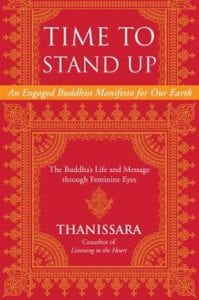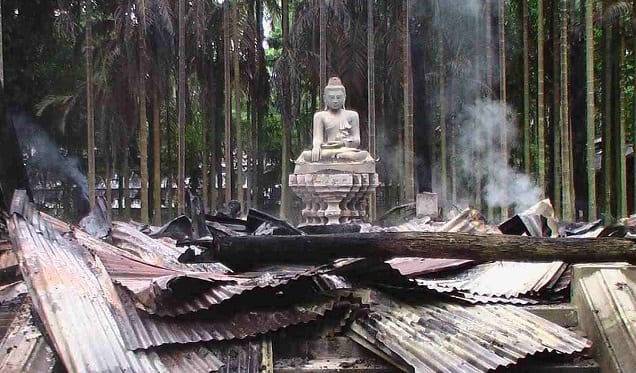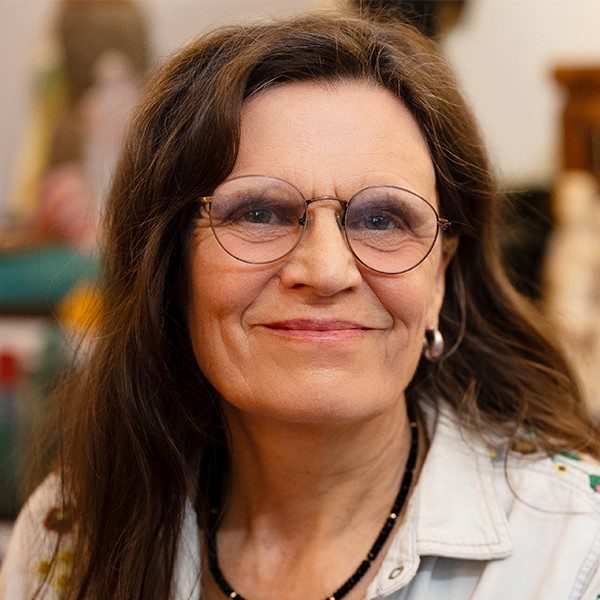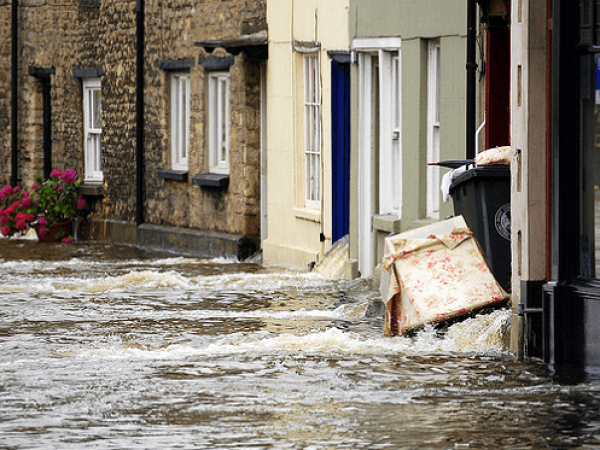I would have liked to write something lighter, happier, and more innocent. Instead I ask you to look with me at a burnt and tortured Earth with its polluted rivers, dying oceans, razed forests, devastated wastelands, and litany of extinct species.
However difficult the reality, just as the Buddha encouraged in his teaching of the First Noble Truth of the fact that human beings suffer, it’s always better to face the truth of our precarious situation rather than avoid it. In doing so we can explore the causes of suffering and realize solutions, as in the Second and Third Truths, the simple truth that craving leads to suffering, and when we stop craving our suffering ceases. We can also cultivate resilience while engaging an effective response, as in the Fourth Truth with its Right Action informed by wisdom, insight, mindfulness, focus, compassion, and skillfulness.
Unlike the historical Buddha who brought about radical systemic change within the society in which he lived, the institution of present-day Buddhism tends to be a conservative force which seeks a transcendent, inner path rather than one of outward engagement. While Western Buddhist movements have had a positive impact on our surrounding communities, we haven’t really felt the need to become activists focused on changing the system. If we moved into Engaged Buddhist practice, it was largely ministering in areas that are byproducts of systemic inequality, for example addressing psychological pain. We have yet to come to terms with centuries of injustices that perpetuate systemic suffering and therefore need to be addressed systemically as well as collectively. By necessity, such a reckoning has to move Dharma practice beyond a personal introversion and quietism.
What value is all this meditation and mindfulness if we just sit by and let the world burn?
Everything is now changing very fast. We are awakening into the realization that our personal enlightenment treks and our small, tribal Sangha endeavors are not going to inspire the kind of “game changer” needed to ensure a sustainable planet for future generations. The reality of catastrophic climate change and its underlying causes awakens the need for a deeper understanding of what has led us to where we are. For example, we need to be open to the implications of centuries of European colonialism that decimated First Nations and used people of color as a means of profiteering and extraction of resources. We need to understand the ways in which Buddhism perpetuates misogyny and hatred of women.
Buddhism is being challenged: what can we who call ourselves Buddhists offer from all our practice, in response to a world in crisis? And what value is all this meditation and mindfulness if we just sit by and let the world burn? If we just sit this out, our “equanimity” will become indifference, our focus on personal awakening will be revealed as self-absorption, and our seeking of peaceful, mindful moments will become willful avoidance and denial. Instead, we now have to shift our focus to look at ourselves, our intentions, what our lives have been built on—personally, nationally, and globally—and to revisit Buddhism itself; how we’ve interpreted and embodied it. Is our Dharma practice helping us to be truly and authentically responsive to the times, or are we simply nice people who are not free or empowered enough to really meet a new global paradigm?
 The Earth’s ecosystems are dying. The impacts of our unsustainable lifestyles are everywhere, every day, and are taking us to the point where human civilization itself is under threat. While solutions are abundant and clear—in essence we have to move to renewable energy and revert to sustainable local models of agriculture—the process of how to get there is less clear. Beside our own difficulty in waking up to hard truths, our societies are fuelled by massive wealth, in the hands of a tiny minority that manipulates mass media and the body politic to keep us in denial and in a trance of endless consumption.
The Earth’s ecosystems are dying. The impacts of our unsustainable lifestyles are everywhere, every day, and are taking us to the point where human civilization itself is under threat. While solutions are abundant and clear—in essence we have to move to renewable energy and revert to sustainable local models of agriculture—the process of how to get there is less clear. Beside our own difficulty in waking up to hard truths, our societies are fuelled by massive wealth, in the hands of a tiny minority that manipulates mass media and the body politic to keep us in denial and in a trance of endless consumption.
The Buddha was radical both in his social actions and in his challenge to individuals to wake up. As we “take the dust from our eyes” we realize that nothing short of a revolution will ensure a sustainable world for future generations. Generating collective resistance alongside a creative, joyful re-envisioning of change at systemic levels offers a hopeful way forward. As humane and ethical uprisings increase, sitting on the sideline does not honor the Buddha’s example. Instead there has to be a reconfiguration of how we hold and engage Buddhist practice.
Our awakening journey is no longer a solo, privileged occupation. Instead, we are invited to align across all boundaries held in place by historic inequality, petty prejudice, grudges and ignorance, to instead forge the “beloved community” imagined by the founder of Fellowship for Reconciliation Josiah Royce and the Rev. Dr. Martin Luther King, Jr. As Buddhists, holding true to the radical edge of the Buddha’s own life, we have much to offer at this time, particularly when we align with faith communities and activists who seek to inform a response that de-escalates our divisive consciousness. If we haven’t begun already, we can start now.
At the end of the day, the essence of the Buddha’s message is “you can do this”. Together, not alone, we can bend the course of history.







